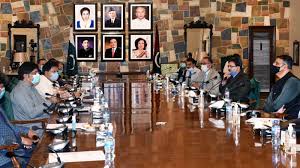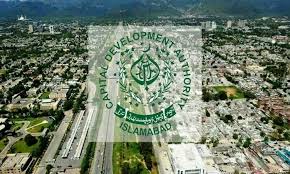Pakistani Centre, Sindh govts agree on CPEC project’s trial runs

Gwadar Pro
Karachi: The federal and Sindh governments of Pakistan have agreed to start trial runs of Karachi Circular Railway (KCR) in the next two months on a 12 kilometre railway track under the China-Pakistan Economic Corridor (CPEC) framework.
The KCR was included in the CPEC framework at the cost of $1.971 billion at the request of the Pakistani government. The KCR is part of the Prime Minister Imran Khan’s massive development plan for Karachi.
An official statement by the Sindh Chief Minister’s Office said the Sindh and federal governments had agreed to start trial runs of local trains in the metropolis in the next two months.
This agreement was finalized in a meeting between Chief Minister Sindh Murad Ali Shah and Federal Minister for Planning and Development Asad Umar.
The two had met to formulate a strategy for the launch of the much-awaited KCR and to implement the Supreme Court orders to start local train projects in the port city.
The meeting decided to start local trains on a track of 12 kilometres from City Station to SITE area as a trial run during the next two months.
The two leaders also discussed whether the local train system would sync in with the modern railway system of KCR.
During the meeting, CM Shah told the minister that the KCR was commissioned in 1964 and was used till 1984 and closed in 1999 after losing its “operational efficiency.”
He added the Sindh government had approved the initial PC-I for KCR’s revival in 2006, which was approved by the Executive Committee of the National Economic Council (ECNEC) in 2012 at the cost of $2.6 billion.
Planning Minister Asad Umar assured the Sindh chief minister that the federal government was serious to start the KCR project at the earliest.
Secretary Railways Habibur Rehman gave a detailed briefing to the participants of the meeting about KCR and the local train system.
He shared a three-phased plan under which construction of the single-line track, rolling of stock, the deputation of human resource and operation were in the first phase.
“In the second phase, dualization of track, singling, fencing and flyovers/underpasses would be constructed,” said the press release. The third phase modern urban rail-based mass-transit will be considered.
The Karachi Transformation Plan (KTP) was prepared on the directives of PM Imran Khan to address the city’s major problems including sewerage, transport and provision of clean drinking water to the masses
The Karachi Circular Railway (KCR) – worth Rs 300 billion – has been included as one of the projects under the Rs 802 billion KTP’s mass transit systems. Iron Brother China would provide Rs 250 billion, the government of Sindh would add Rs 50billion to the project.
With its hub at Karachi City station on I. I. Chundrigar Road, KCR’s revived operations would extend north to Gadap, east to Dhabeji, south to Kiamari and west to Hub.
The revived KCR operation is intended to become an inter-regional public transit system in Karachi, with an aim to connect the city centre with several industrial and commercial districts within the city and the outlying suburbs.
The revival effort of KCR have been proposed several times since becoming defunct, though remained unfulfilled due to lack of financial and political backing.
In May 2017, the federal government approved a Rs 27.9 billion ($170 million) restoration package for the KCR, however delays and disputes with the Sindh provincial government ultimately led to the cancellation of the funding.
In August 2020, the federal government approved a Rs 10.5 billion ($63 million) rehabilitation package for the KCR restoration.
The funding is slated to cover only phase one and phase two of KCR’s restoration project, similar to the restoration of the Karachi-Peshawar Railway Line, according to Ameer Muhammad Daudpota.
The KCR total length will be around 50 kilometres and it includes the revival includes the transformation of the old Karachi Circular Railway (KCR) into a mass transit system.





